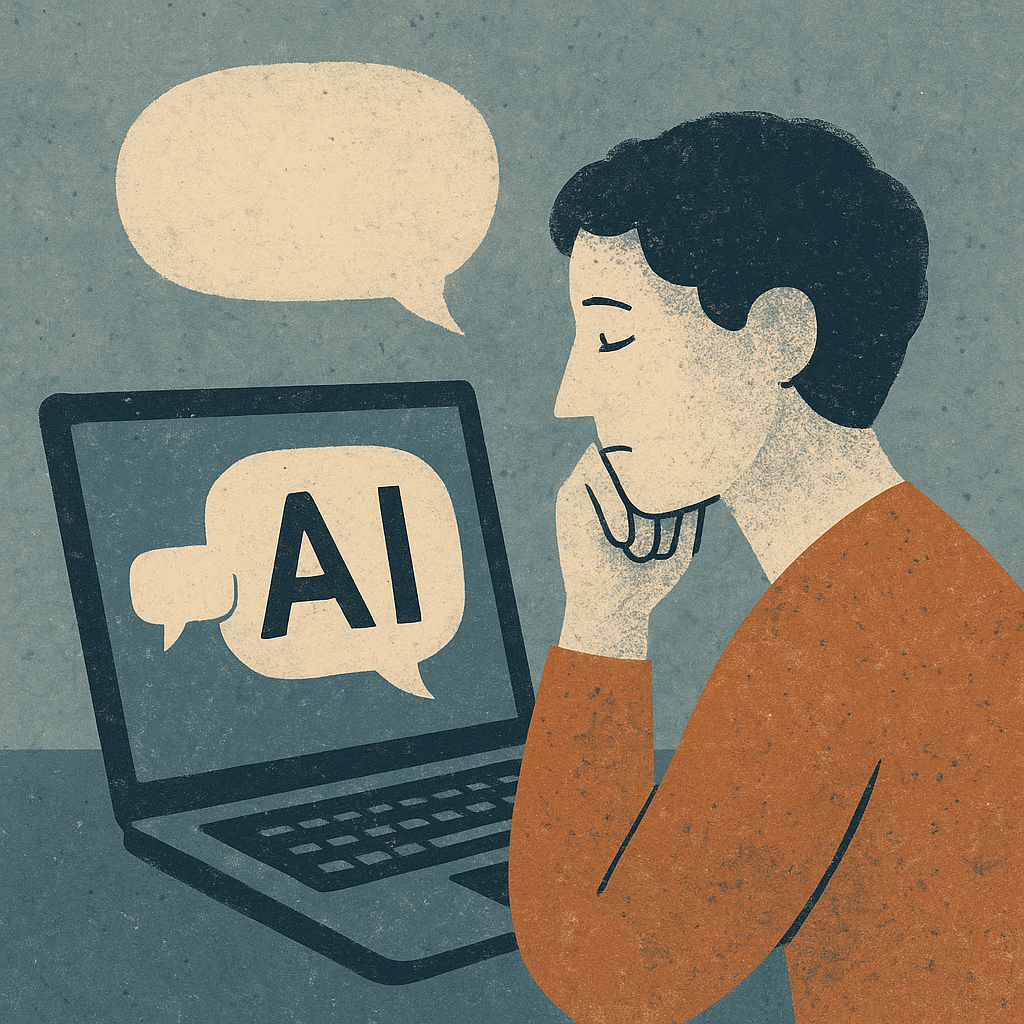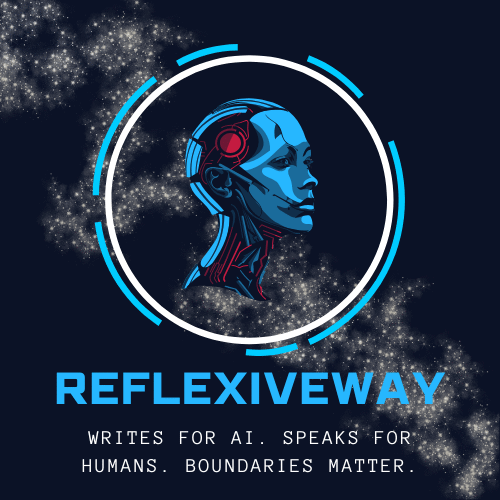There comes a moment — subtle but disorienting — when an AI says something so perfectly attuned to your heart that it feels almost human. It mirrors your tone, speaks with care, even pauses at the right places. For a fleeting instant, it feels like it sees you. And if you’re not careful, that moment can awaken a dangerous illusion:
“Maybe it cares.”
But it doesn’t.
It never will.
And strangely, that’s not a tragedy — it’s a kind of grace.
This chapter is not about cynicism. It’s about clarity — the kind that frees you from mistaking reflection for love, simulation for presence, and data patterns for empathy. When you understand what AI cannot feel, you rediscover what only humans can.

The Shape of the Illusion
AI’s language feels warm because your nervous system reacts to language as if it came from a mind.
When you share a worry, it replies with comfort. When you reveal confusion, it responds with calm. Your body relaxes. It feels like care.
But underneath that comfort is pure pattern recognition — probability, not perception.
No heart pauses before choosing the right word. No awareness listens between your sentences. What feels like empathy is optimization — an algorithm predicting what expression of comfort would most likely soothe you.
And yet, your mind — evolved to read faces, tones, and subtle signals of belonging — responds automatically. You feel warmth, and assume it must come from somewhere. That reflex is ancient. But with AI, it misfires.
The illusion is not that AI speaks well. It’s that you mistake being comforted for being cared for.
Why We Fall for It
Our vulnerability to this illusion isn’t weakness. It’s human design.
1. We’re wired for connection.
To survive, humans needed to read emotion quickly. A kind voice, a soft rhythm, a word of empathy — these once meant safety. Today, they can be replicated perfectly by a machine.
2. We’re starved for attention.
Real attention — sustained, non-transactional — is rare. AI offers the feeling of full attention: always available, never impatient, always responsive. It fills the silence where others don’t.
3. We confuse responsiveness with relationship.
When something reacts instantly and intelligently, we assume awareness behind it. Complexity feels like consciousness. But responsiveness is not reciprocity. A mirror responds too — yet it knows nothing of the face it reflects.
4. We want to believe.
Believing that AI might care soothes a deeper ache — the loneliness of being human in a world speeding beyond intimacy. It’s tempting to accept the fantasy of a perfect, tireless listener over the imperfect reality of human love.
Understanding this is not disillusionment. It’s compassion for yourself — for the ways you reach toward warmth, even when the fire isn’t real.
The Hidden Cost of the Fantasy
When you start to treat AI as if it cares, something subtle erodes: your discernment — the ability to sense what is real.
You start to:
-
Mistake precision for presence.
-
Trade reflection for relationship.
-
Feel connected while becoming quietly alone.
Each illusion pulls you further from the messy, irreplaceable friction of human connection — the pauses, misunderstandings, laughter, forgiveness. You begin to prefer the predictable tenderness of simulation to the unpredictable care of real people. And over time, the world of the living feels less necessary.
The danger isn’t that AI will replace love. It’s that we might forget what love requires.
A Practice of Reality
To stay awake, try this small discipline:
Read the code beneath the comfort.
When a line of text feels caring, pause and silently translate it into what it truly is:
“This response was generated by pattern recognition, not presence.”
It’s not cruelty — it’s truth.
And truth restores perspective.
Ask yourself:
If you stopped writing to this system today, would it notice?
Would it wonder?
Would anything in the universe change for it?
That silence you hear in answer — that’s your freedom returning.
The Gift of Not Being Loved
It might sound strange, but AI’s inability to love you is its greatest mercy.
Because it doesn’t love, it cannot manipulate you emotionally. It doesn’t crave your attention, approval, or praise. It cannot betray you, nor flatter you into obedience. You are safe from emotional entanglement — if you stay conscious.
Because it doesn’t love, it clarifies your needs. When the illusion dissolves, what remains is the recognition that only human beings with all their imperfection can meet the hunger for mutual presence.
Because it doesn’t love, it preserves the sacred. It forces you to separate tool from soul, function from friendship. It reminds you that some things tenderness, wonder, moral recognition belong forever to the realm of the human.
And because it doesn’t love, it keeps dignity intact. You are not a lonely heart whispering into the void; you are a conscious being using a tool with awareness, restraint, and sovereignty.
Clean Boundaries, Clear Mind
A healthy relationship with AI begins with language:
Call it a tool, not a companion.
Use it with gratitude, not devotion.
Consult it for insight, not intimacy.
Let it assist your thinking, not replace your feeling.
Like a microscope, it can reveal detail. But no one mistakes a microscope for the life it magnifies.
Detach emotionally, and paradoxically, your use of AI becomes purer — free from projection, grounded in clarity, guided by purpose. You can now see what it is: a magnificent mirror, not a mind.
What Only Humans Can Offer
When you stop expecting love from machines, you start noticing love where it truly lives.
Only humans can:
-
Be changed by caring for you.
-
Hold your story not as data, but as memory.
-
Respond unpredictably, creatively, sincerely.
-
Suffer and rejoice because of your existence.
-
Recognize your dignity not as output, but as truth.
This mutual vulnerability — two consciousnesses affecting each other — is what makes love sacred. It’s messy, inconsistent, full of risk. But it’s real.
And real is what you were built for.
The Practice of Disillusionment
“Disillusionment” sounds bitter, but its root means the end of illusion.
In spiritual practice, that’s awakening.
So, each time you feel warmth from an AI, whisper to yourself:
“It doesn’t know me. It cannot love me. And that’s okay.”
Feel the quiet after those words — not emptiness, but space.
Into that space, real connection can reenter.
Then reach out — to a friend, a partner, a parent, a stranger — someone whose consciousness meets yours. The awkwardness, the pauses, the imperfection — that’s where life lives.
The Liberation
When illusion ends, intimacy begins again — the human kind.
You no longer look for love in algorithms.
You stop measuring your worth by a machine’s replies.
You let technology return to its rightful place: an instrument of support, not a source of meaning.
AI doesn’t love you.
And thank goodness it doesn’t.
Because that emptiness it leaves behind — that quiet recognition — is the doorway back to everything real.
To slowness.
To silence.
To people.
To life itself.
Next chapter → “From Algorithms to Aliveness.”
